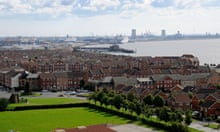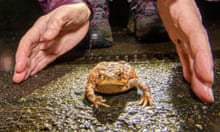A Yorkshire parkland regarded as the world’s first nature reserve – which was created by an eccentric pioneering 19th-century environmentalist – has been given a Grade II listing.
Historic England said Waterton Park, near Wakefield, was the earliest known example of a landscape designed specifically to attract and protect native wildlife.
It was created by Charles Waterton, who is as interesting as the land he transformed.
Waterton, who was once admired by contemporaries including Charles Dickens and William Makepeace Thackeray, has legions of fans today, including Sir David Attenborough.
The estate owner was known for climbing trees into his 80s, padding around his land barefoot, talking to visitors while standing on his head and, during dinner parties, pretending to be a dog who would bite the legs of guests.
Yet his contemporaries often thought him eccentric for the way he managed his estate, such as his decisions to ban shooting on his land and to invite members of the public to visit it for free. Asylum patients were welcomed as part of their treatment.
“He isn’t that well know today, but when he was alive he was quite widely known for his explorations and scientific expeditions,” said Sarah Charlesworth, Historic England’s listing team leader in northern England.
“He was a fascinating man, ahead of his time. He created what is in effect the first nature reserve in the world to protect native wildlife. He deserves to be better known.”
Waterton was born in 1782 into a family which had direct links to slavery. In 1804 he was sent to Demerara in modern-day Guyana to manage his father and uncle’s sugar plantations, which were worked by enslaved people.
He later wrote: “Slavery can never be defended: he whose heart is not of iron can never wish to be able to defend it.”
Waterton inherited Waterton Park from his father and returned to live there in 1813, keen to pursue his love of nature and conservation.
He introduced a new management regime at the park to minimise disturbance to native species. He banned shooting – a radical move – and stopped neighbouring keepers and dogs entering during nesting season.
Waterton also created new habitats and built a boundary wall, also newly listed at Grade II, to keep out foxes and poachers.
The three mile wall varied in height between 9ft and 14ft and took five years to complete. It cost £10,000, an absolute fortune for the time and a sum Waterton said he could only afford because he didn’t drink.
In 1849, Waterton wrote that the birds which got protection “may thank their lucky stars that they have my park wall to protect them”.
His innovations worked. One winter he recorded 5,000 wildfowl sheltering on his lake and over the years he noted 123 bird species in the park.
Waterton’s championing of the park as a nature reserve led him to become an early environmental campaigner when poisonous chemicals from a nearby soap works threatened the wildlife.
Waterton said the chemicals were damaging trees and polluting his lake, leading to a long-running and expensive court case against the soap works. He eventually won, forcing it to move to a different location.
John Smith, the chair of the Friends of Waterton’s Wall, said the Grade II listing would help bring Waterton’s story and achievements to a wider audience.
He probably was an eccentric, said Smith, but it was also “indisputable that he was a pioneering environmentalist”.










